Ready to take off?
In the inspiring ambient of the former Fokker-factory, the Healthcare Clowning International Meeting (HCIM) finally took place in April 2022, after some delay due to the pandemic. The scope of the conference was to share research outcomes, best practises and know how among healthcare clowning organisations that allow them to contribute to increasingly person centred approaches in medical and care settings which recognize the importance of emotional wellbeing – from birth to end of life care.
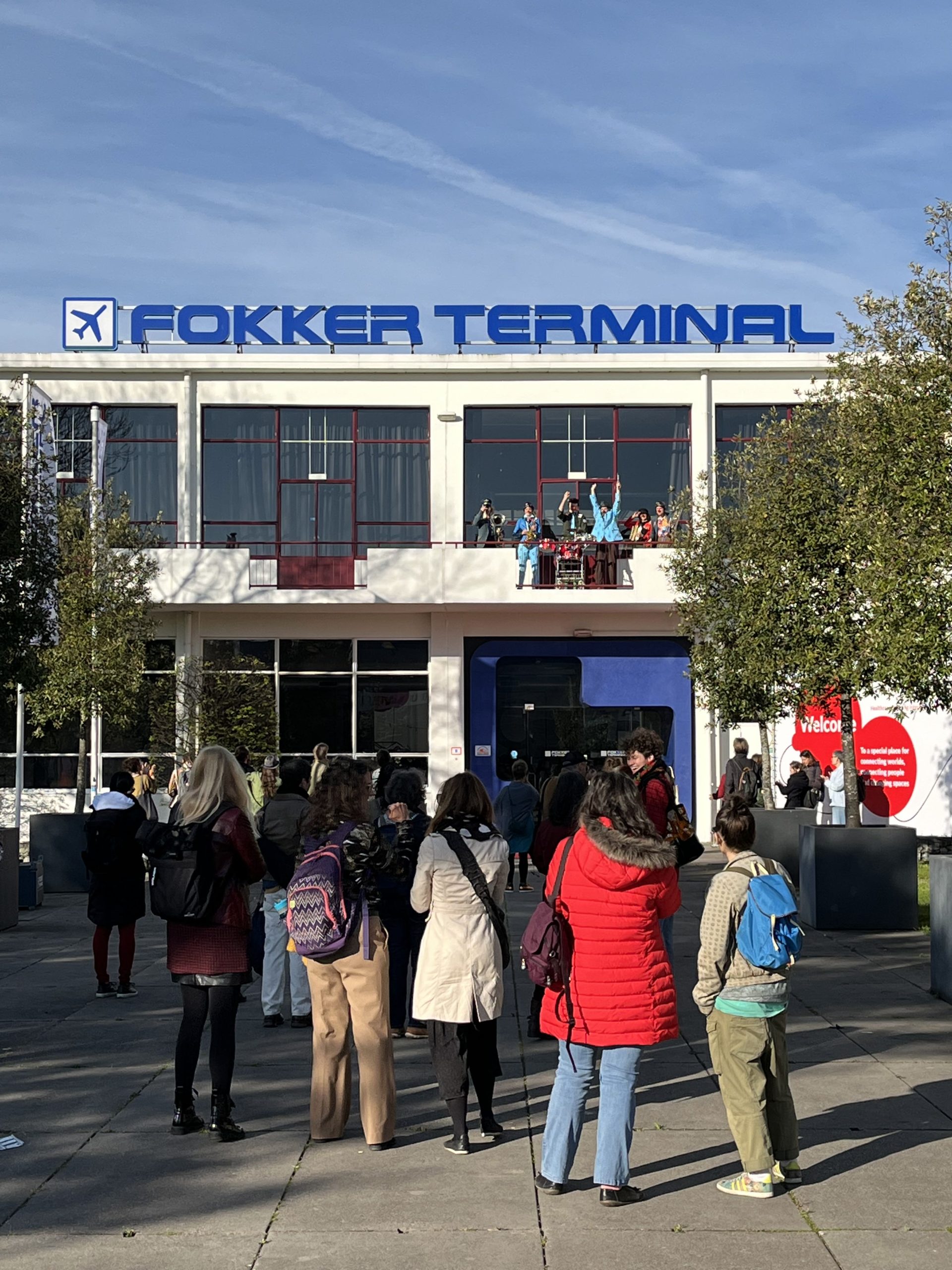
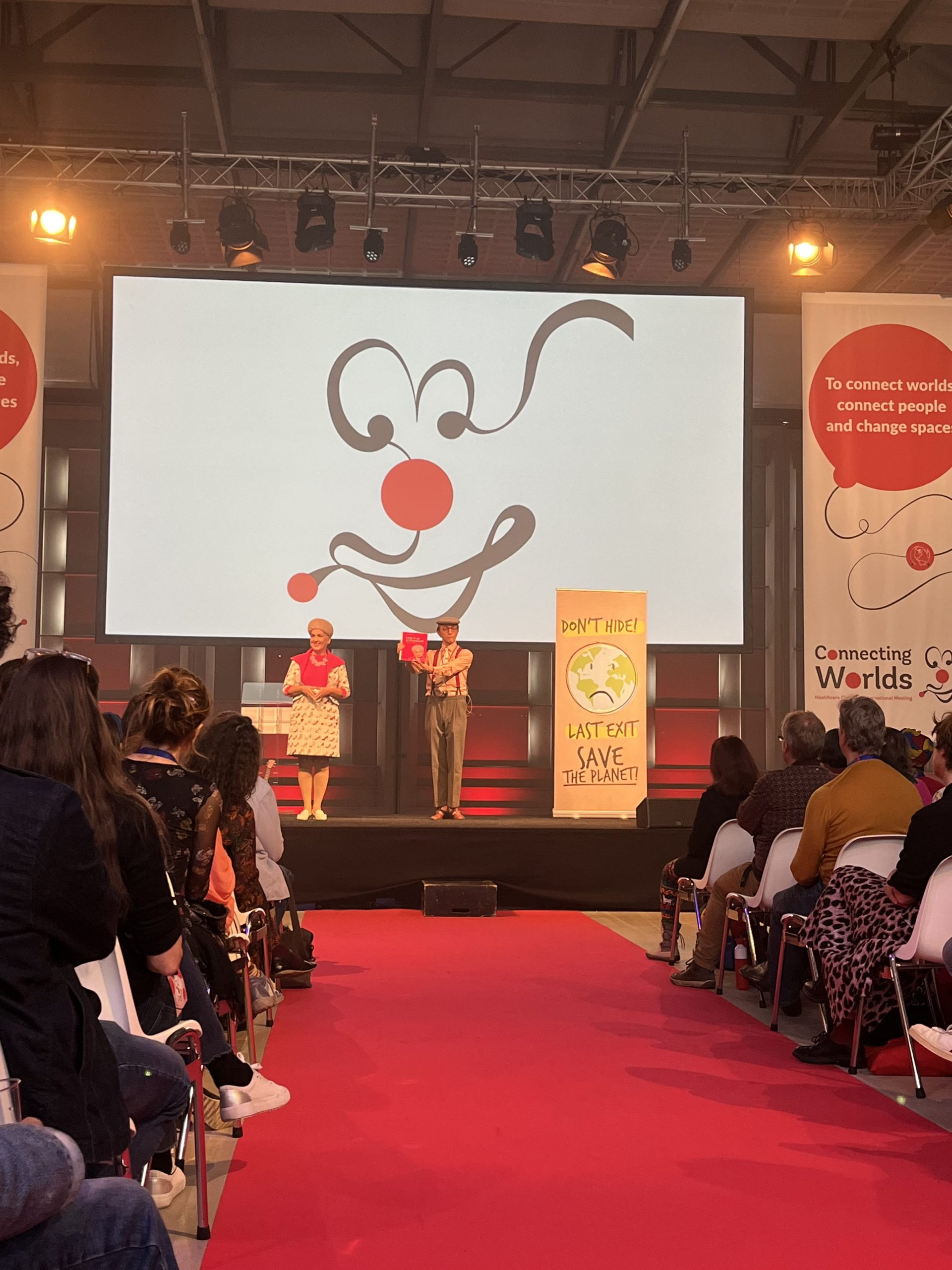
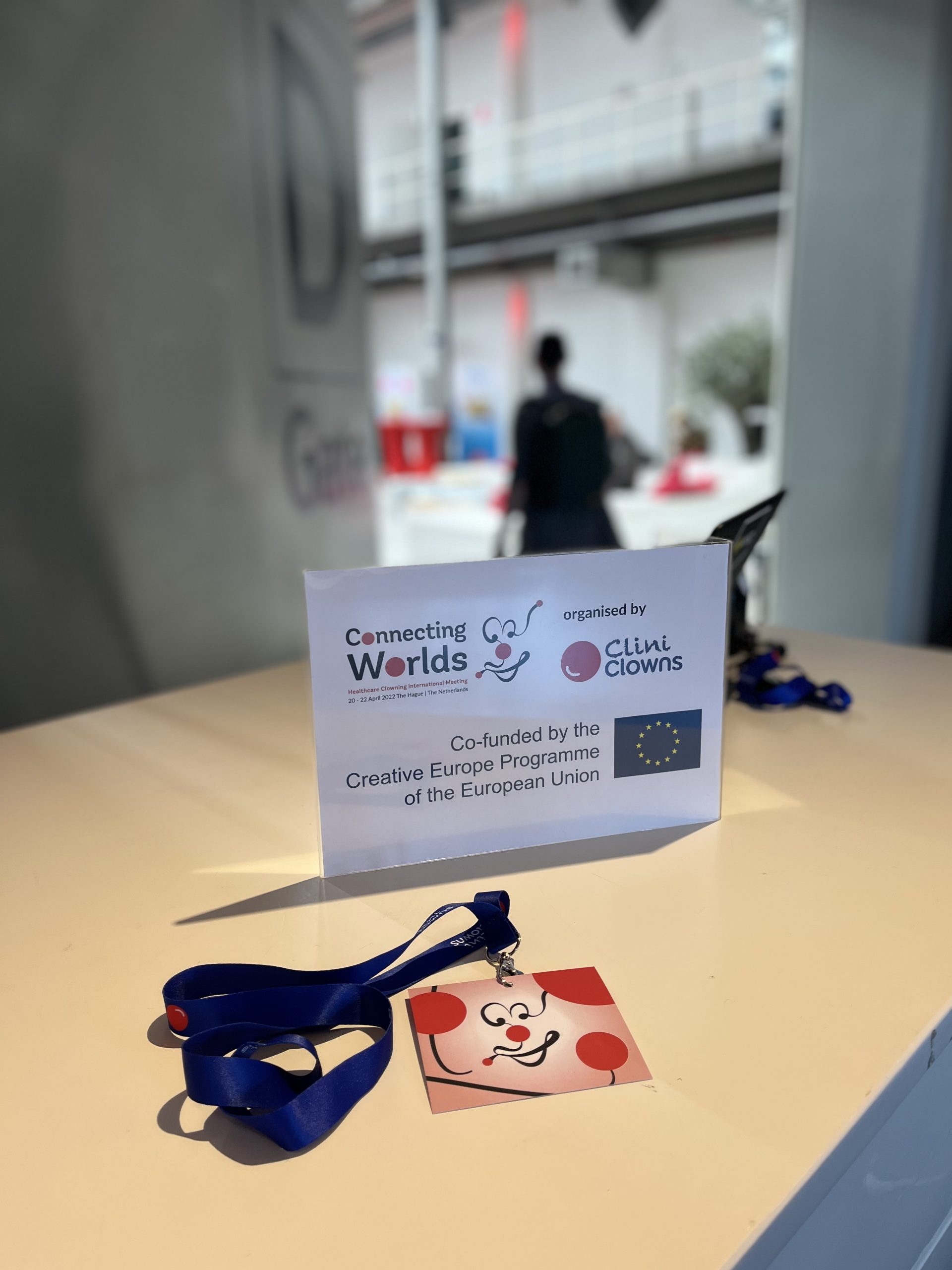
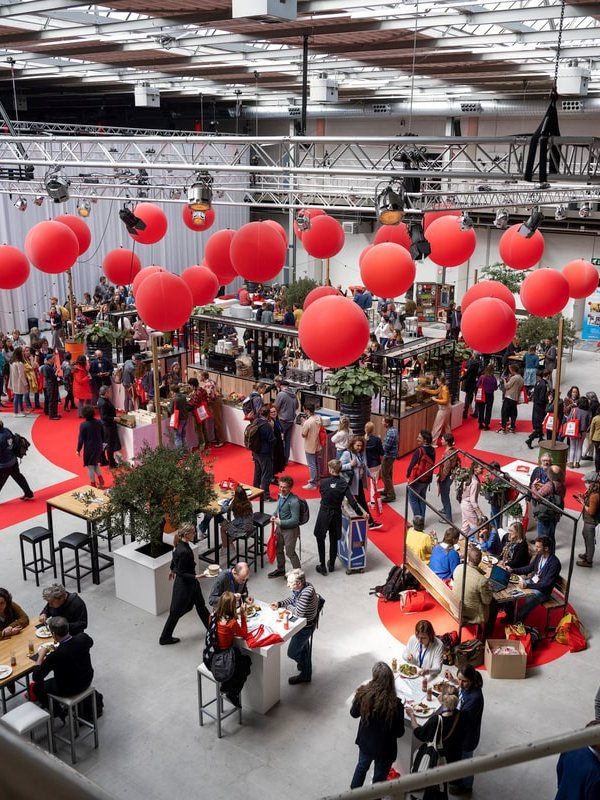
The three-day-event was an informative and fun journey for more than 320 participants on average each day from all over the world. People came from the cultural as well as medical sector.
The conference was opened with a keynote speech by Christopher Bailey, Lead of Arts and Health at the WHO. He captivated the audience with a lively talk about the existing evidence on the impact of creativity, clowns and humour on the healing process. Christopher Bailey stated that an investment in clowning is an investment in healing and hope, which in the end has a measurable impact on individuals, as well as on the whole society.
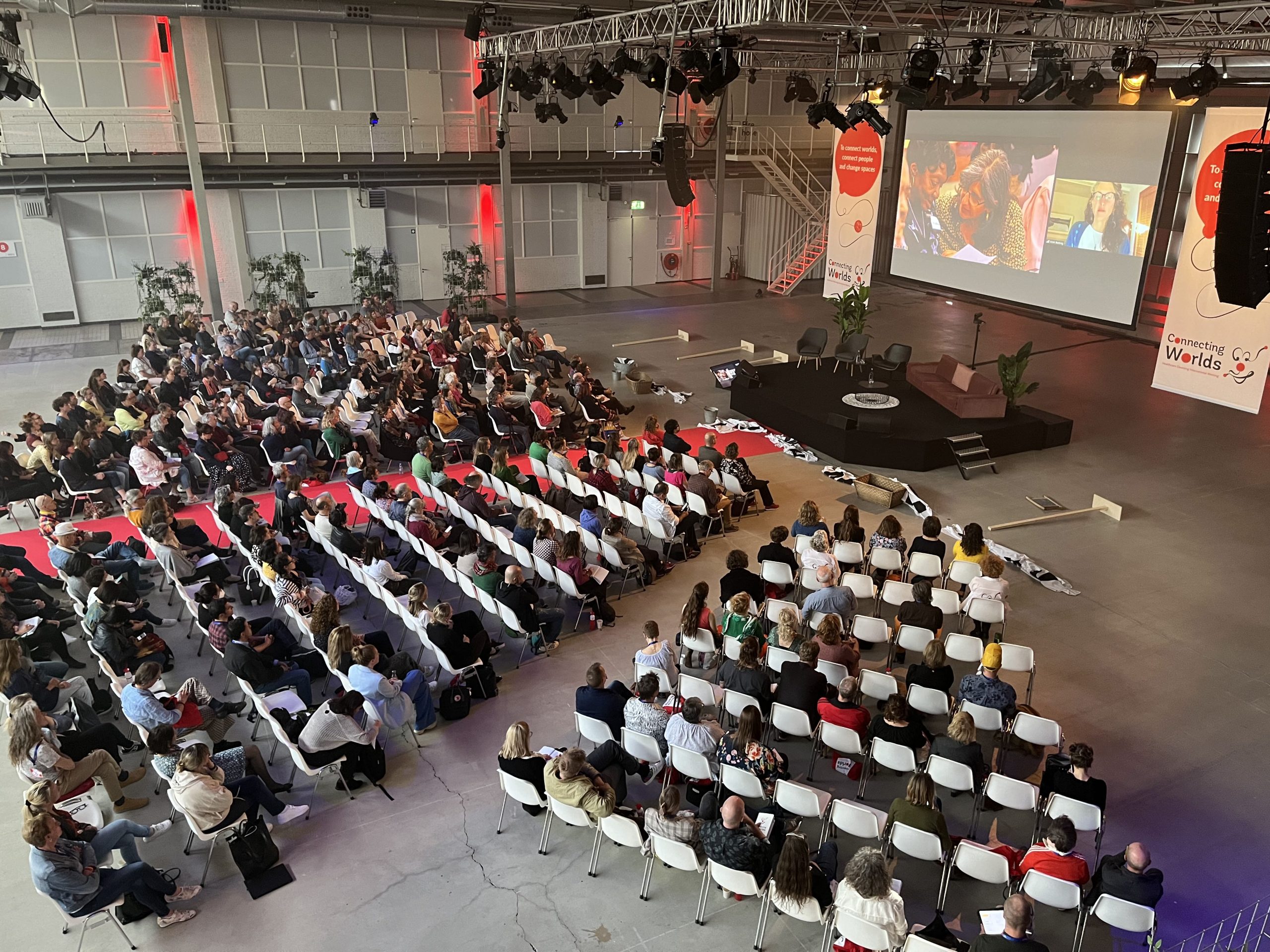
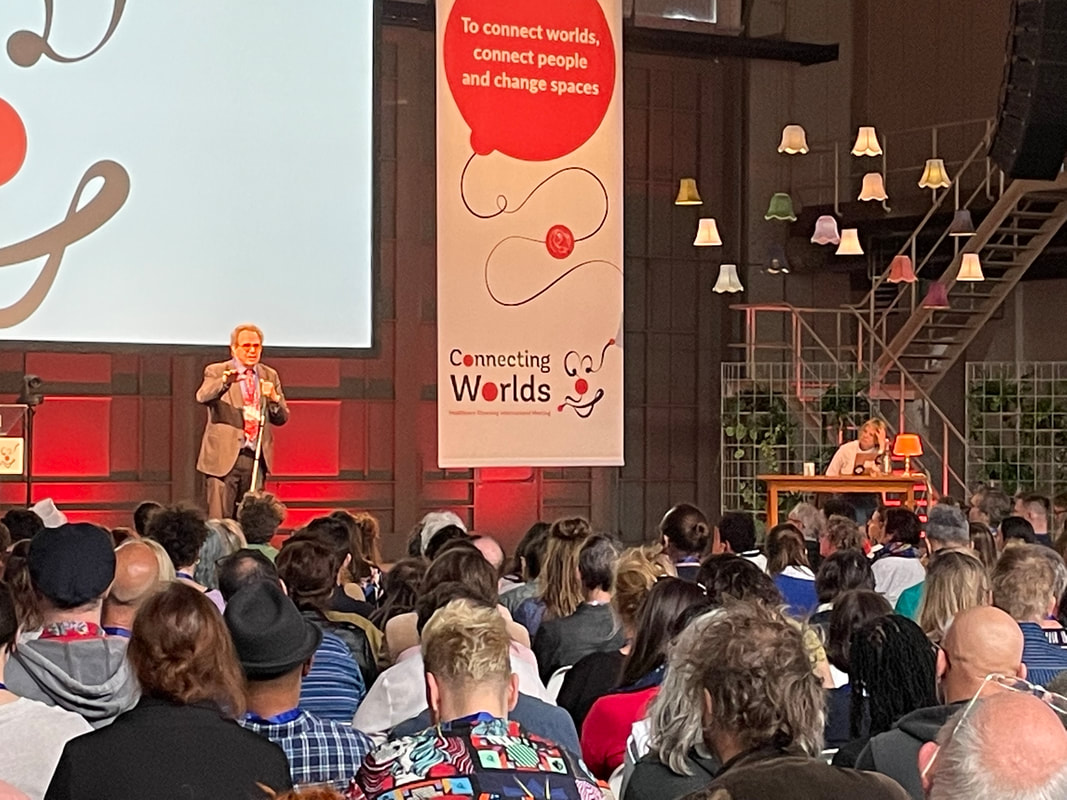
Many of the parallel sessions focused on children with autism. Recent studies have shown that autism affects around 1 in 100 people. Clowns can play an important role to ensure that children with ASD have access to cultural activities that fit to their needs and take into account their special talents and wishes. The exchange on successful clown activities and experiences was very rewarding.
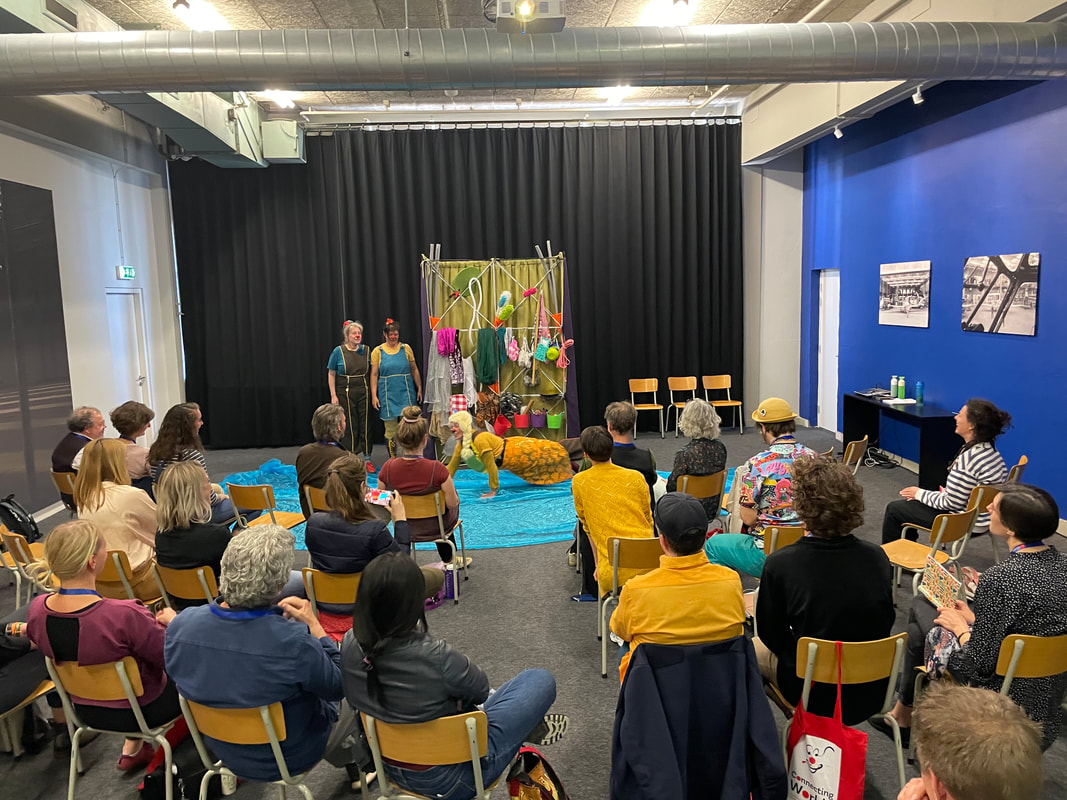
Another focus was on clowning for elderly with dementia. As many societies are facing a demographic age shift, the art of clowning for elderly gets more and more important. It can increase the quality of life of elderly, contribute to the social inclusion of people with dementia and improve their opportunities for creative self-expression. At the same time, as our care systems are overburdened and care is mostly process driven and lacking the time for compassionate actions, clowns play an important role in humanizing the care of elderly and contribute to the wellbeing of staff.
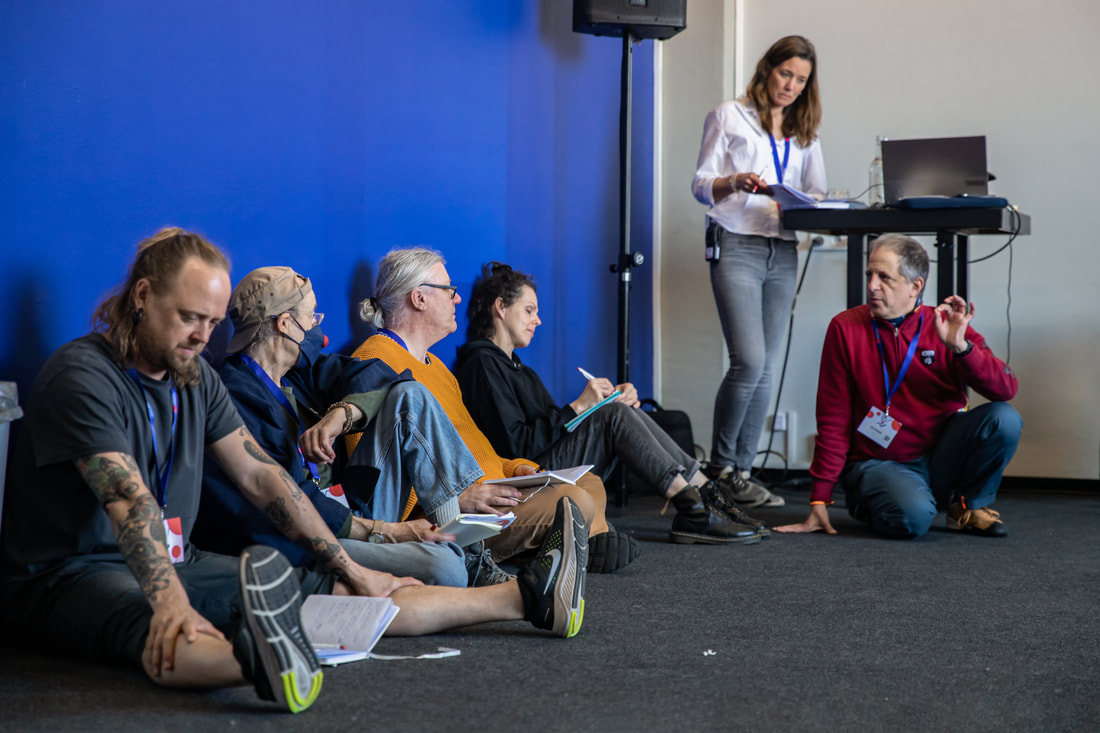
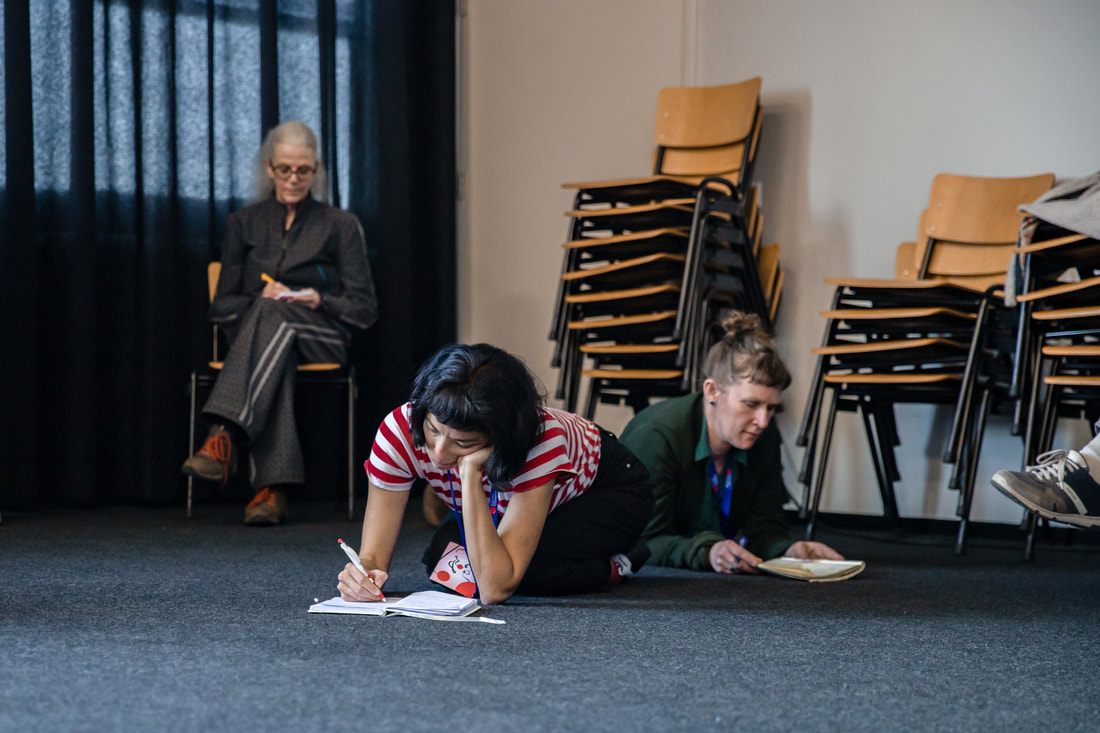
The conference also revealed the many areas of operation of the clowns from palliative care, clowning during medical procedures, clowning for children with disabilities, clowning in the education system, online clowning and much more.
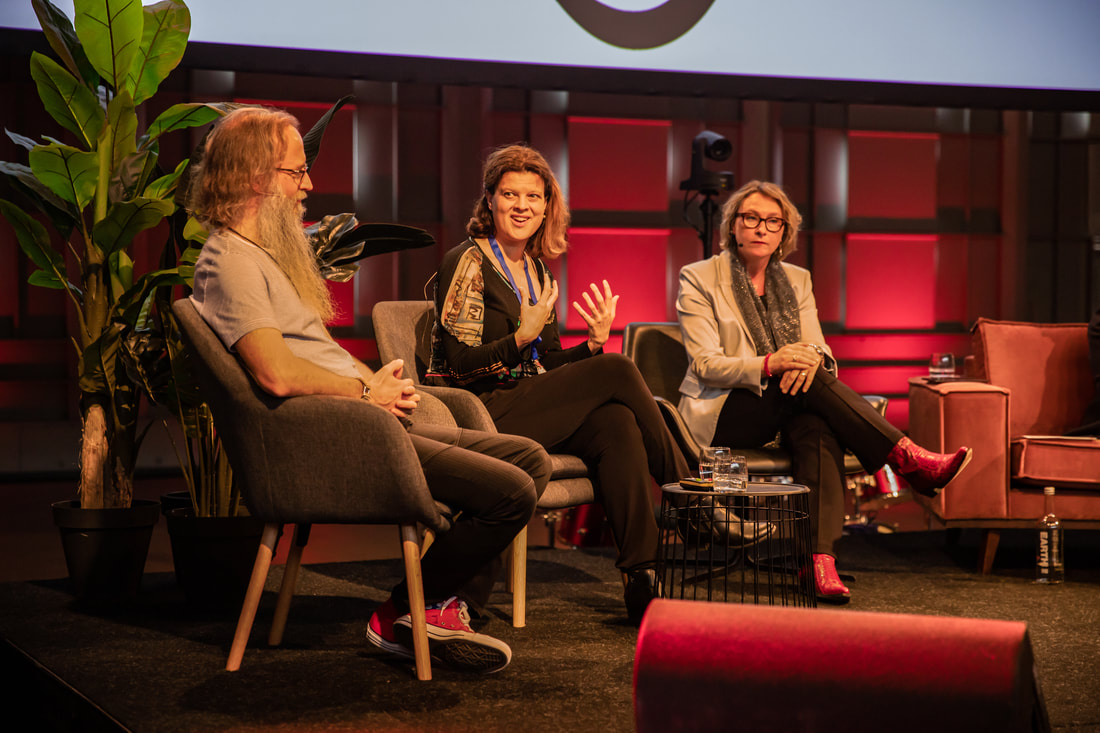
What will the future bring?
Possibilities for cultural expression, self-agency and human connection play an important role in living a good life, the prevention of diseases and in the healing process of every person. By engaging in cross-sectoral efforts, we can make the medical, social care and humanitarian sectors more person-centred and empathic, allowing humans to flourish in all situations.
HCIM is part of the Clownexus project, which is co-funded by the Creative Europe programme of the European Union: www.clownexus.eu
Copyright photos: Red Noses International, Cliniclowns Netherlands, Gaby van Koningsveld, Laura van Dolron

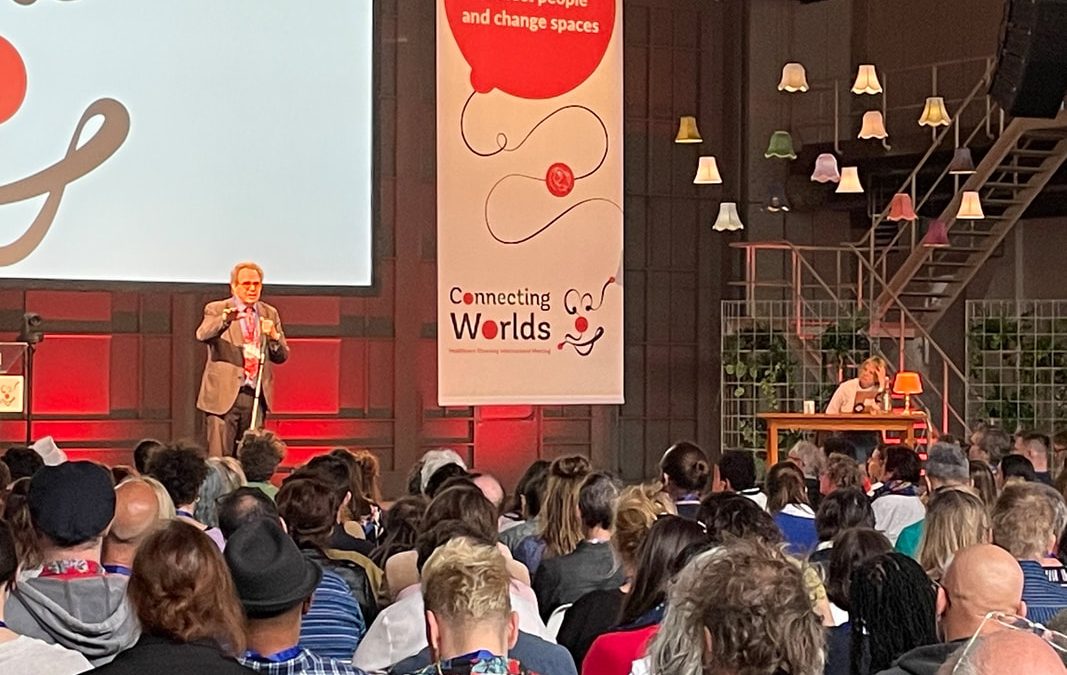



Recent Comments